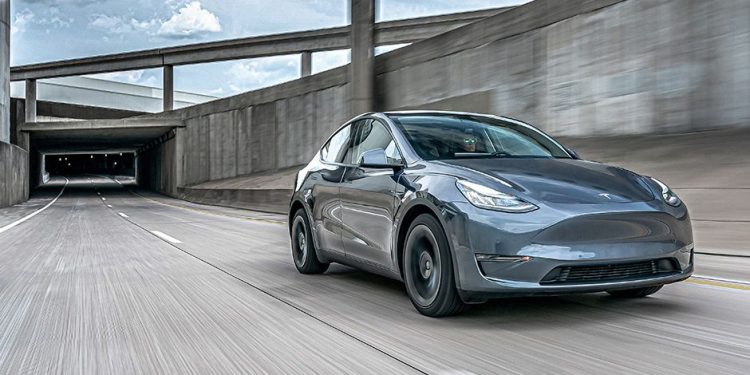Elon Musk believes Tesla Model Y could become world’s best-selling car
Much of Tesla’s current success comes down to its successful one-two Model 3 and Model Y punch. The pairing are the American car-maker’s cheapest offerings in the US, and both have sold like hot cakes since they landed.
The Model Y’s global roll-out is still in progress, with right-hand drive markets like New Zealand still patiently waiting for the compact electric SUV. According to Tesla CEO Elon Musk, once the right-hook variant launches and production steams ahead in China, the nameplate has the potential to be the world’s best-selling car.
While speaking during Tesla’s 2021 Q1 press conference over sales, Musk made the call that the Model Y could become the world’s best selling car by either 2022 or 2023. He fleshed this out further on Twitter, explaining that the nameplate could become the world’s biggest “based on revenue” in 2022 and “possibly total units” in 2023.
To put this into perspective, Toyota sold 1.1 million Corollas worldwide in 2020, making it the world’s most popular passenger vehicle. Tesla, by contrast, sold 442,000 Model 3s and Model Ys combined in 2020.

Tesla’s currently forecasting big growth for 2021, with sales of Model 3s and Model Ys tipped to grow by 50 per cent over 2020. On top of the world’s slightly improved position with the Covid-19 pandemic, Tesla is also tipping higher output from its new Shanghai GigaFactory, and a continuation of strong sales in China.
If it achieves this 50 per cent growth goal, it will still be short of the Corolla’s 1.1 million units, assuming the prolific compact continues to sell in high quantities around the world. Based on its forecast, Tesla will deliver 994,500 Model 3s and Model Ys combined in 2022.
It’s been a busy week for Tesla and its CEO. It was confirmed earlier in the week that Musk would be hosting an episode of Saturday Night Live. This off the back of handy profits being reported from Q1; Tesla earning US$438million in the first three months of 2021 via the deliveries of 184,800 Model 3s and Model Ys.
The firm also made good money from its other revenue streams. Its sales of regulatory credits netted US$518million in Q1, and the sale of some Bitcoin (remembering that the firm is accepting the cryptocurrency as payment in certain locations) made it US$101million in the same quarter.





